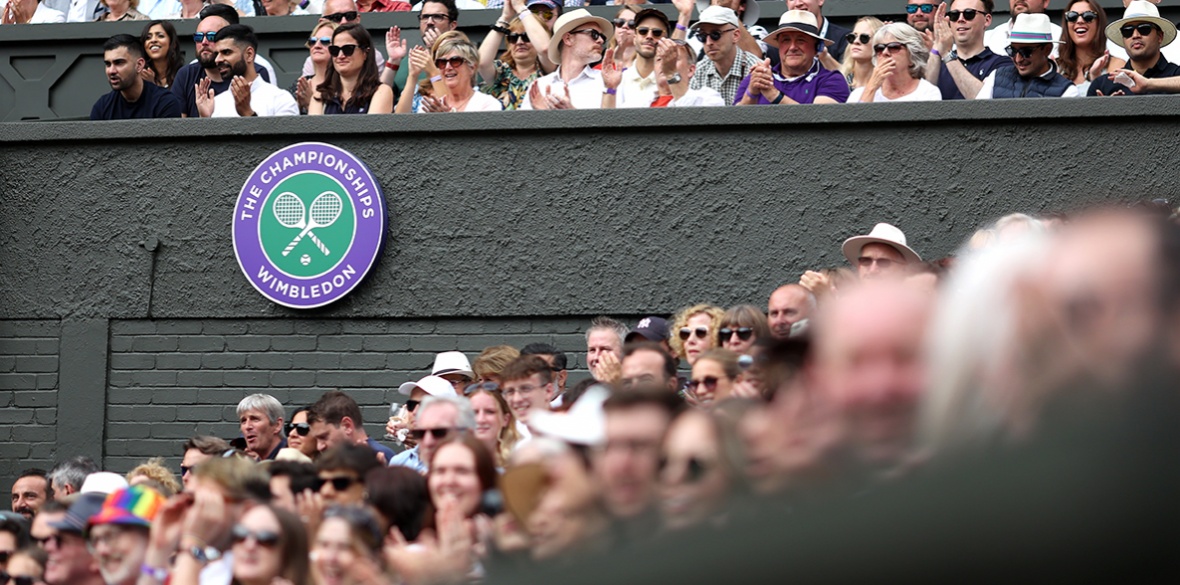This is the last article you can read this month
You can read more article this month
You can read more articles this month
Sorry your limit is up for this month
Reset on:
Please help support the Morning Star by subscribing here
POLITICS and sport absolutely should mix. In fact, they just automatically do, whether we like not or not.
Formula 1 was right to pull their Grand Prix out of Sochi, Russia, in response to the Russian invasion of Ukraine. They would do well to heed their lately fading superstar, British racer Lewis Hamilton, and cross Saudi Arabia off their calendar as well.
But Wimbledon’s decision to ban individual Russian and Belarusian tennis players from their lofty Championships this summer is not mixing politics and sport. It’s discriminating against individuals for crimes committed by an autocratic leader who jails those who speak out against him.
It’s been hailed as the correct decision by those who believe this action will in some way hurt Russian president, Vladimir Putin. It won’t. He doesn’t care. Even extreme economic sanctions already in place seem not to have dissuaded him from his ruthless attacks on Ukrainian cities and their inhabitants. Barring a few tennis players from the elegant grass courts of England won’t change anything.
In fact, it serves to gag those who might be brave enough to oppose Russia’s invasion. After advancing to the final of the Dubai Championships in February, just a day after the Russian invasion began, Russian tennis player Andrey Rublev wrote “No War Please” in felt pen on a TV camera lens. He went on to win the title.
Daniil Medvedev of Russia, currently the world’s second ranked player, also made a plea for peace prior to competing in a California tournament in March. “I want peace in all the world, in all countries,” he said in a press conference before suffering a surprise loss in the third round to Frenchman Gael Monfils.
Must they now be silenced? If so, we are doing Putin’s work for him.
World number one Serbia’s Novak Djokovic said Wimbledon’s decision was a mistake because “when politics interferes with sport, the result is not good.” But that’s the wrong argument.
Athletes, like other celebrities, are in a powerful position to speak out on issues, and tennis players have been doing so for decades.
Arthur Ashe led the charge to boycott South Africa. Although he visited the country to see conditions for himself, he was opposed to tournaments being held there until apartheid ended.
Martina Navratilova, who has chastised Wimbledon for its Russian player ban, was outspoken for gay rights and, although no longer playing on the tour, fills her Twitter feed with progressive commentaries on a whole host of topical issues.
At every round of the 2020 US Open Tennis championships, Naomi Osaka, a bi-racial player who represents Japan, wore a new mask bearing the name of a black victim of US police violence.
Other young American tennis stars, including Coco Gauff and Nicole Gibbs, use their social media platforms to speak out on racism, fairness and free speech.
Briton Andy Murray’s grumpy on court persona belies his ardent off-court advocacy for feminism and women’s equality.
Wimbledon apparently considered, and rejected, following Formula 1’s lead in offering Russian and Belarusian players the option of neutrality, as F1 did to Russian driver Nikita Mazepin at the start of the 2022 season.
However, Mazepin, who drove for Haas, and who reportedly accepted the condition, was dropped by his team anyway. Haas also cancelled its contract with its title sponsor, Uralkali, for whom Mazepin’s father, billionaire oligarch Dmitry Mazepin, a known associate of Putin’s, serves as deputy board chairman.
And Motorsport UK, host of Britain’s Formula 1 Grand Prix in July among other events, has also banned Russian and Belarusian drivers, effectively nullifying F1’s earlier “neutral flag” offer.
So it’s complicated. However, silencing those who perform in one capacity or another on the public stage, smacks a little of Stalinist purges, one of the crimes Putin’s regime is also guilty of as it arrests, imprisons, and occasionally poisons oppositional musicians, journalists, politicians and others.
In a March 20 Guardian article famed former Soviet ballet dancer Mikhail Baryshnikov criticised the Wimbledon decision:
“I don’t think it’s right to put the weight of a country’s political decisions on the backs of artists, or athletes, who may have vulnerable family members in their home country,” Baryshnikov said. “For people in those exposed positions, neutrality is a powerful statement. And if you want me to be specific, Daniil Medvedev should play Wimbledon.”
Navratilova, who herself defected from then communist Czechoslovakia as a teenager in 1975, told National Public Radio: “I just don’t think this solves anything,” and noted the hypocrisy of the All England Club and others happily supporting the Russian economy for years before suddenly getting a conscience.
“I just find it kind of hypocritical for some of the people involved that they now find a moral compass where they were doing business with Putin’s Russia for decades and only pulled out a couple of weeks ago,” she said in the interview.
Indeed, while players may be banned, should a Russian oligarch show up at Wimbledon this summer with a ticket, he will not be denied his seat. If there are any Russian or Belarusian members of the All England Club, they won’t be banned either.
As Navratilova concluded: “Politics and sports are intertwined.”
Linda Pentz Gunter is a writer based in Takoma Park, Maryland.










